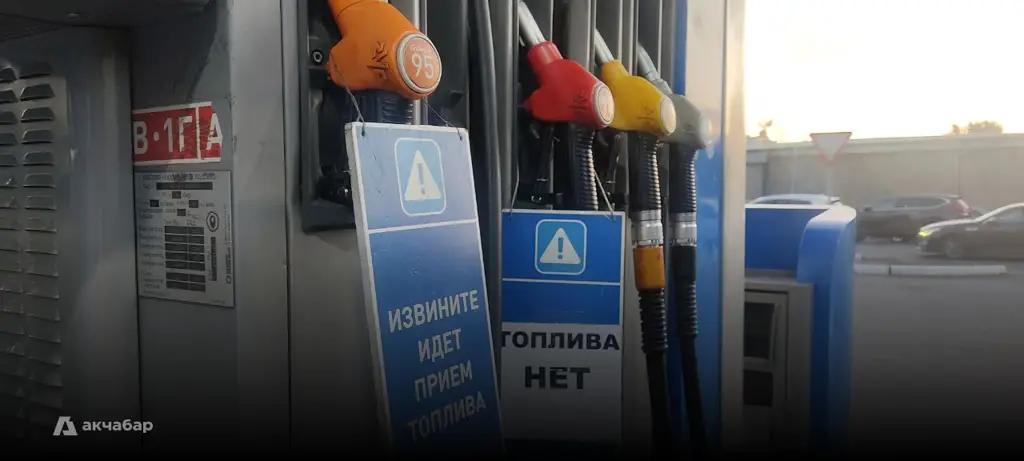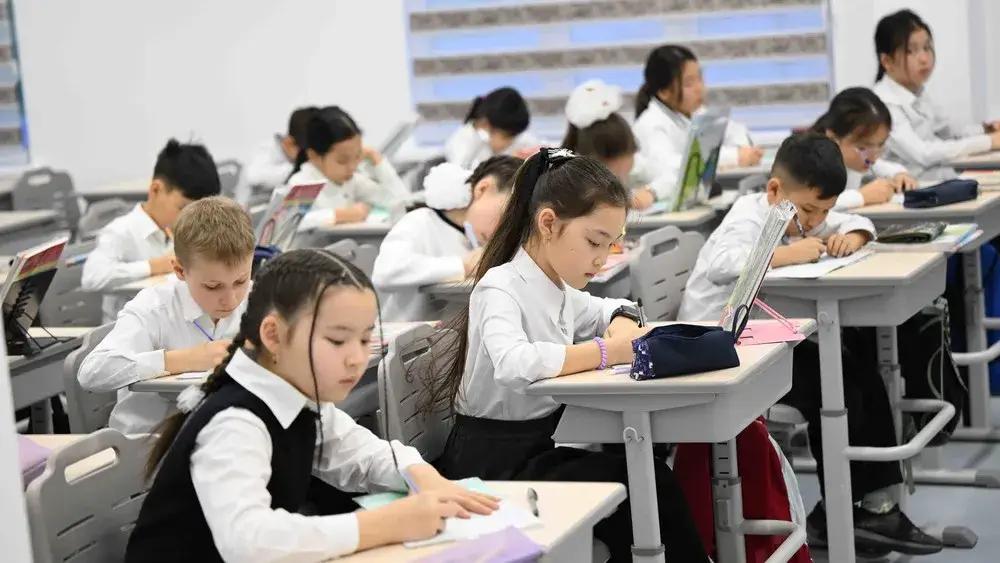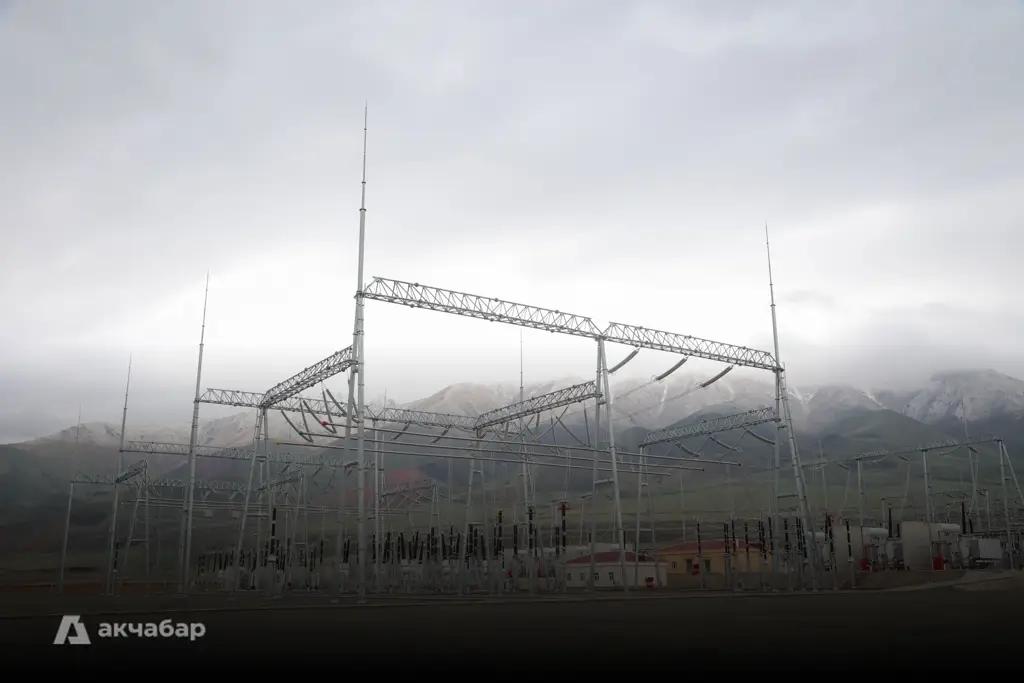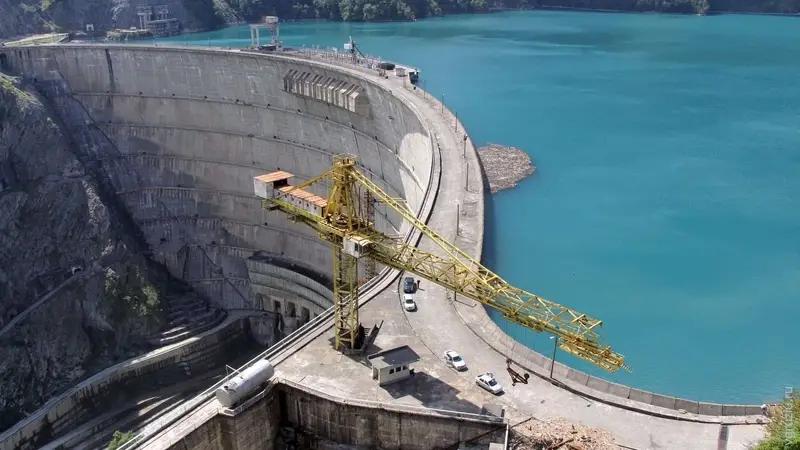
Published
10/08/2024, 16:03At some Bishkek petrol stations, there is a lack of AI-95. According to reports from petrol stations, this is because fuel is brought to petrol stations in small batches, which are bought up in a few days. Thus, AI-95, which had been brought in at the beginning of last week, ran out by Thursday evening and has not been delivered yet.
Meanwhile, while there is a fuel shortage in the capital and nearby settlements, Jogorku Kenesh deputies are discussing the introduction of a new levy on fuels and lubricants. Under the levy, one KGS would be charged on each litre of fuel sold at petrol stations. Not everyone liked the idea, but it was still supported in the first reading on 3 October.
At the same time, the Association of Oil Traders of Kyrgyzstan expressed serious concerns about plans to introduce fuel labelling in the country, believing that its introduction at this stage could create significant risks for businesses and the Kyrgyz economy.
One of the key problems is the uncertainty of the labelling price. According to the tax authorities, the projected labelling service cost is expected to be 40-50 tyyns per litre of fuel, however, this price may change due to the volatility of prices for imported markers. The Association warns that the labelling implementation will significantly increase the financial burden on oil traders, who already face high taxes and fees. As a result, the additional costs may lead to higher fuel prices for end consumers and increase inflation risks.
The Association also expressed concern about the lack of the labelling system's transparency and readiness. The fuel labelling standards have not been properly developed, and the operator company responsible for the implementation - OJSC ‘Uchkun’ - does not have sufficient experience in the oil industry. Oil traders call for a review of the terms and conditions of the labelling introduction, suggesting to launch the pilot project for 1-2 years, which will allow the business to adapt and avoid a sharp rise in prices and negative economic implications.
In addition, oil traders noted that the new levy will impact logistics also. For oil depots in remote regions, such as Osh, Talas, Batken, it may take more than five days to change the marker, which increases the risk of delays in deliveries to petrol stations. In winter, when the passes are closed, this period can increase significantly, creating additional risks for business.
It should be noted that petrol in these regions is already the most expensive in Kyrgyzstan. For example, as of 4 October, the most expensive AI-95 petrol is in Razzakove, Batken oblast. Its price is 74.7 KGS, while the average cost in the country is 74 KGS.
The same situation is with AI-92 petrol: it is most expensive in Osh oblast - 68.47 KGS, and diesel, which has already soared in price by 9.31% over the year, is most expensive in Kerben (76.2 KGS), Kara-Suu (76.2 KGS) and Uzgen (76.2 KGS).
"Companies must apply for labelling three days before delivery, and the operator determines the required amount of marker at the central office in Bishkek. However, if there is more than a 2 % discrepancy in fuel volumes, marker replacement is required, which is particularly problematic for remote regions. Delays in replacement can lead to idle wagons, which entails significant penalties that increase the cost of fuel and the final price for consumers,' the Association said.
It should be noted that the price of fuel and lubricants is increasing with every time. For example, during the year, since 4 October last year, the A-95 petrol price in the Kyrgyz Republic has increased from 71.29 KGS to 74 KGS, which is an increase of 3.8%. It increased the most in Kara-Suu (+3.8 KGS). AI-92 gasoline, the most popular among consumers, increased by 3.96% as well, rising from 64.57 KGS to 67.13 KGS per litre. It rose the most in Balykchy (+4.24 KGS). A-80 rose by 7.97%, up to 60.81 KGS.
HIDDEN TAX
The bill caused discussions among the deputies too. In particular, MP Dastan Bekeshev expressed his view that such measures should be introduced through excise duties or other taxes, rather than through non-tax payments.
He noted that the proposed levy is a hidden tax increase, which misleads the public, giving the impression that taxes are not being increased.
"I believe it should be done, but through excise duty or another tax. In return, the transport tax, currently levied by traffic police officers and the SE "Unaa" when vehicles are registered and re-registered, could be abolished. The administration of this new levy would be complex even for petrol station owners. They will have to report to the Ministry of Transport additionally,’ Bekeshev said.
It is known from public data that the fuel levy practice exists in such countries as Kazakhstan, Belarus, Azerbaijan, Georgia, and others.
For example, in Azerbaijan, there is a ‘Motorways’ fund. A road tax operates there, including a special tax on fuel and foreign vehicles. This tax is regulated by the Azerbaijani Tax Code and is levied on fuel produced in the country or imported. The tax rate is AZN 0.02 per litre (approximately $0.012 per litre) and applies to all fuels, including petrol, diesel and LPG.
ROAD MAINTENANCE IN KYRGYZSTAN
Currently, Kyrgyzstan's Road Fund is replenished by excise taxes on fuels and lubricants, fees and fines for roads and transport (registration, passes, weighing, travelling on artificial structures), and allocations from the republican budget.
‘In fact, about 2 billion KGS is allocated from the republican budget, which is about 100 KGS per 1 kilometre of road, which is negligible for their proper maintenance,’ the justification note says.
We will add that Kyrgyzstan currently has 34,000 kilometres of roads, of which 19,840 kilometres are public roads, which are under the jurisdiction of the Ministry of Transport.


